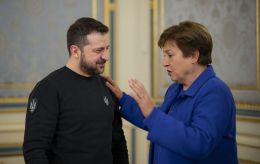Anton Motolko, Founder of Belarusian Hajun: 'Belarus is under double occupation'
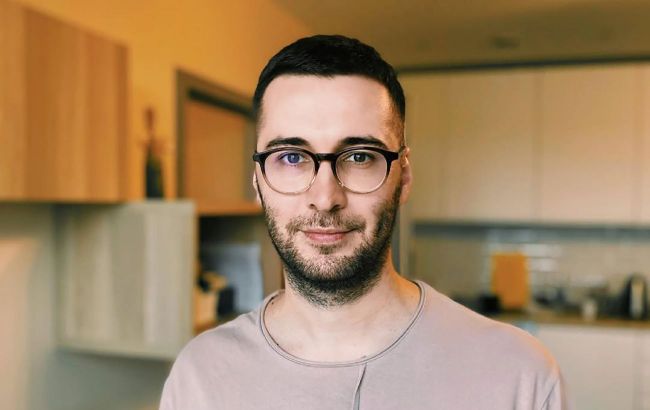 Anton Motolko, founder of the Belarusian Hajun project (Photo: Facebook page)
Anton Motolko, founder of the Belarusian Hajun project (Photo: Facebook page)
On the potential overthrow of Lukashenko's regime in Belarus, the relationship between the Belarusian dictator and Putin, propaganda, ongoing repression, the Oreshnik system, and nuclear weapons on Belarusian territory — read in the RBC-Ukraine's interview with Anton Motolko, founder of the Belarusian Hajun project.
Contents
- Lukashenko's regime and the "elections"
- Lukashenko and Putin
- Migration of Belarusians abroad
- Repression
- Oreshnik and nuclear weapons in Belarus
Ukrainians became familiar with the Belarusian Hajun project at the start of Russia's full-scale invasion when the aggressors, including those advancing from Belarusian territory, attacked Ukraine. The project's founder, Belarusian activist Anton Motolko, has lived abroad since 2020 and cannot return to his homeland. Lukashenko's regime has sentenced him in absentia on 12 charges, including "conspiracy to seize state power through unconstitutional means."
Meanwhile, the "Belarusian Hajun" continues its work, monitoring all military activities in the country daily—both Russian and Belarusian. As Motolko told RBC-Ukraine, Belarusians still send him information from the ground despite repressive laws that make any contact with Hajun punishable by lengthy prison terms.
In the conversation with RBC-Ukraine, Motolko discussed many topics, ranging from Lukashenko's frequent portrayal of himself as a great commander to his relationship with Putin and the prospects for overthrowing the regime in Belarus. Tomorrow, January 26, "elections" will take place, during which Lukashenko will once again reappoint himself president of the country.
Watch the full version of the conversation above; below is an abridged version of the discussion.
Lukashenko's regime and the "elections"
"This isn't the kind of electoral cycle we're used to in our region. There's no electoral process happening at all. There are no basic things — freedom of speech, access to the press, or any freedoms that usually precede elections. There is Lukashenko, there are spoiler candidates, and there are pseudo-opposition candidates who don’t even hide their pseudo-opposition," Motolko says about the January 26 "electoral" event.
When asked who is more likely to overthrow Lukashenko — a popular uprising or the so-called "elites"—Motolko doesn’t have a clear answer. He explains that there are no "elites" in Belarus as we understand them in Ukraine. "Lukashenko has ensured over the past 30 years that no one takes any responsibility, ever. Everyone is afraid to lead or show they're capable of anything," he says.
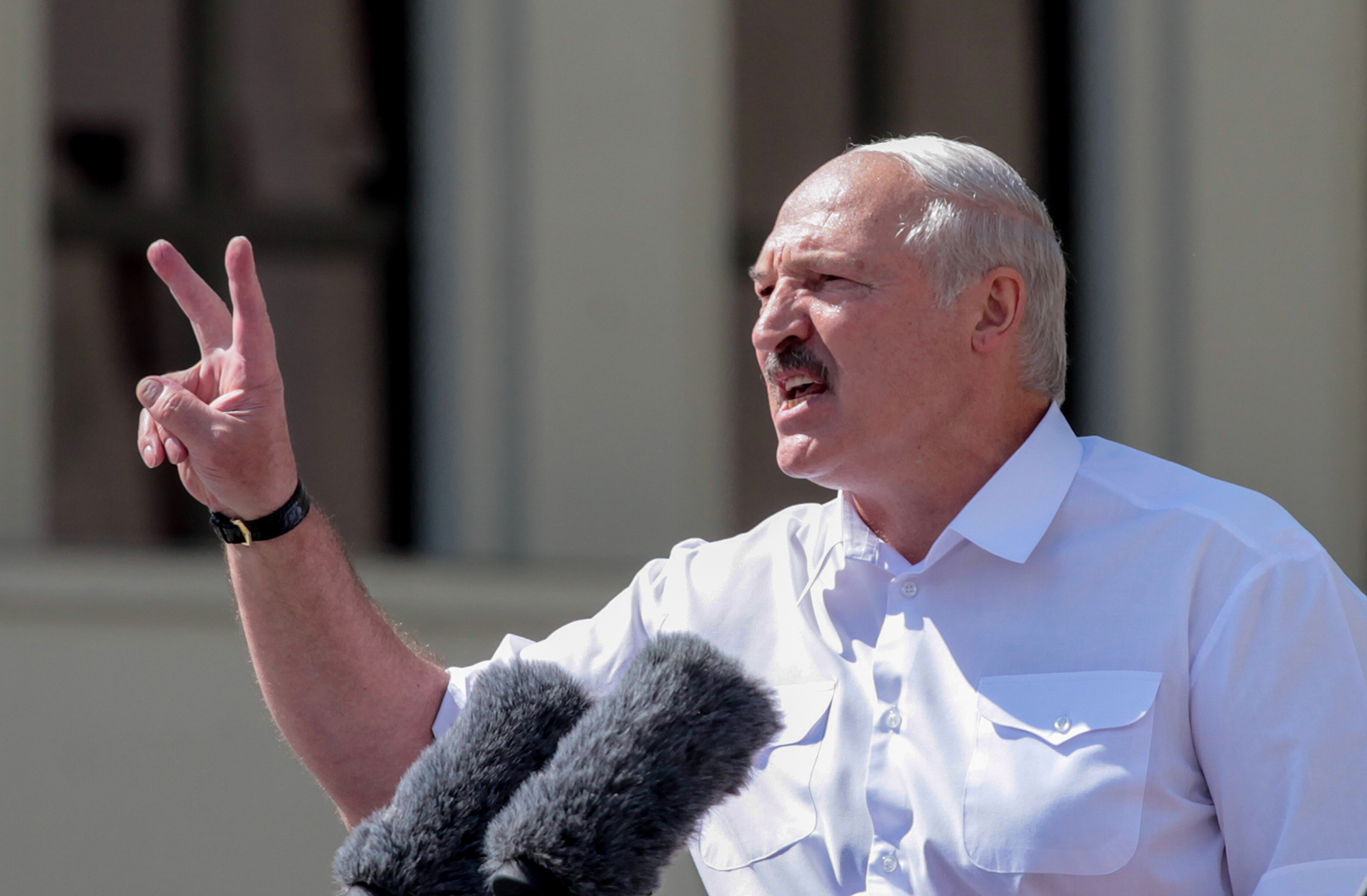
Alexander Lukashenko (photo: Getty Images)
Therefore, regime change in Belarus could happen in many ways: evolutionary (Lukashenko isn’t getting younger) or revolutionary. The country could take a civilized path or become a military junta with external support from Russia, China, or Iran.
"I believe Belarus is under double occupation — by Lukashenko and by Russian forces. We know Belarus even under Lukashenko before 2020, and Belarus with Russian troops… The 2022 referendum (on changes to the Belarusian constitution, ed.) took place with Russian forces present on the ground. This was a safeguard, but they were there with full military gear. So yes, I consider Belarus to be under double occupation," says Motolko.
Lukashenko and Putin
"Security forces watched what Putin would say. And Putin said they prepared a brigade near the Belarusian border. Of course, that worked—it played a moral-psychological role because, essentially, the message was: 'Make a move, and you’ll be fighting Russians,'" Motolko describes Russia's role in the events of 2020, during mass protests against Lukashenko that were ultimately suppressed.
However, he doesn’t believe Russian tanks would actually enter Belarus to install a new president or support Lukashenko. According to Motolko, one need only look at how slowly Russia reacted to incursions into its own territory, such as in the Kursk region last summer.
"Ultimately, they’re two peas in a pod," Motolko says of the current relationship between Lukashenko and Putin. "It’s more about mutually beneficial conditions. Often, Putin does dominate, and Lukashenko allows himself to be treated like a younger brother."
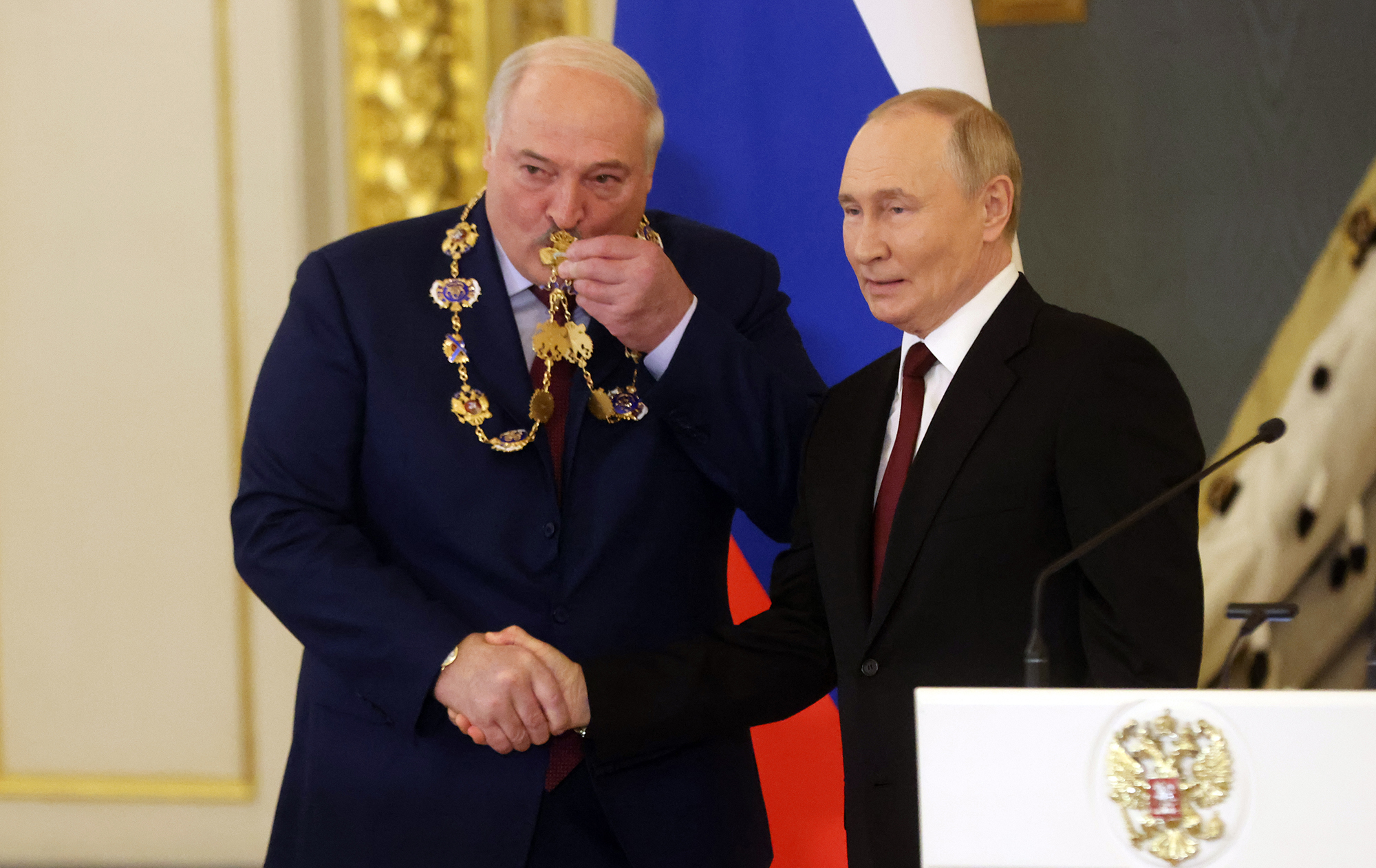
Lukashenko and Putin (photo: Getty Images)
When Russia launched its full-scale invasion of Ukraine, Motolko says, Lukashenko, per his agreement with Putin, provided territory and opened borders. Therefore, Lukashenko is clearly complicit in the aggression against Ukraine.
"What is his role and mission in Russia's aggression? Could he have refused? Perhaps, if he hadn’t been suppressing Belarus for two years prior and had public support. But in the current situation, no. This is about doing whatever it takes to hold onto power. He will do anything to stay in power as long as possible," Motolko says.
Belarusian migration abroad
Before the events of 2020, when Belarusians took to the streets en masse to protest rigged elections, emigration was primarily economic. In recent years, however (especially with the war in Ukraine), it has taken on a distinctly political tone. According to Motolko, around two million Belarusians now live abroad, compared to eight million remaining in territories controlled by Lukashenko.
"In February-March 2022, IT companies in Belarus were chartering flights to evacuate people to Georgia, Armenia, Kazakhstan, and Central Asia because air connections with Ukraine and Europe were closed. There was a mass exodus of IT workers and people afraid of being drafted. This wasn’t about mobilization — it was about 'we don’t want to fight,' because there’s a consensus among Belarusians: we don’t support the war in Ukraine, we don’t support Belarus’ involvement, and we don’t want to fight," Motolko says.
Repression
"At 5-6 a.m., they break down your door, burst in with automatic weapons, restrain you, and pin you to a table. If you have children, that's your problem. They may or may not put a bag over your head — depending on their mood — and transport you to the Investigative Committee, GUBOZIK (Main Directorate for Combating Organized Crime and Corruption), the Ministry of Internal Affairs, or any other department. What happens next depends on the mood of those detaining you. They might notify your family at home about what happened, but most likely, you'll only learn about it at the station where you're taken. After that, they’ll try to extract as much testimony as possible — whether to implicate others or for some other reason," says Motolko, describing the current realities in Belarus.
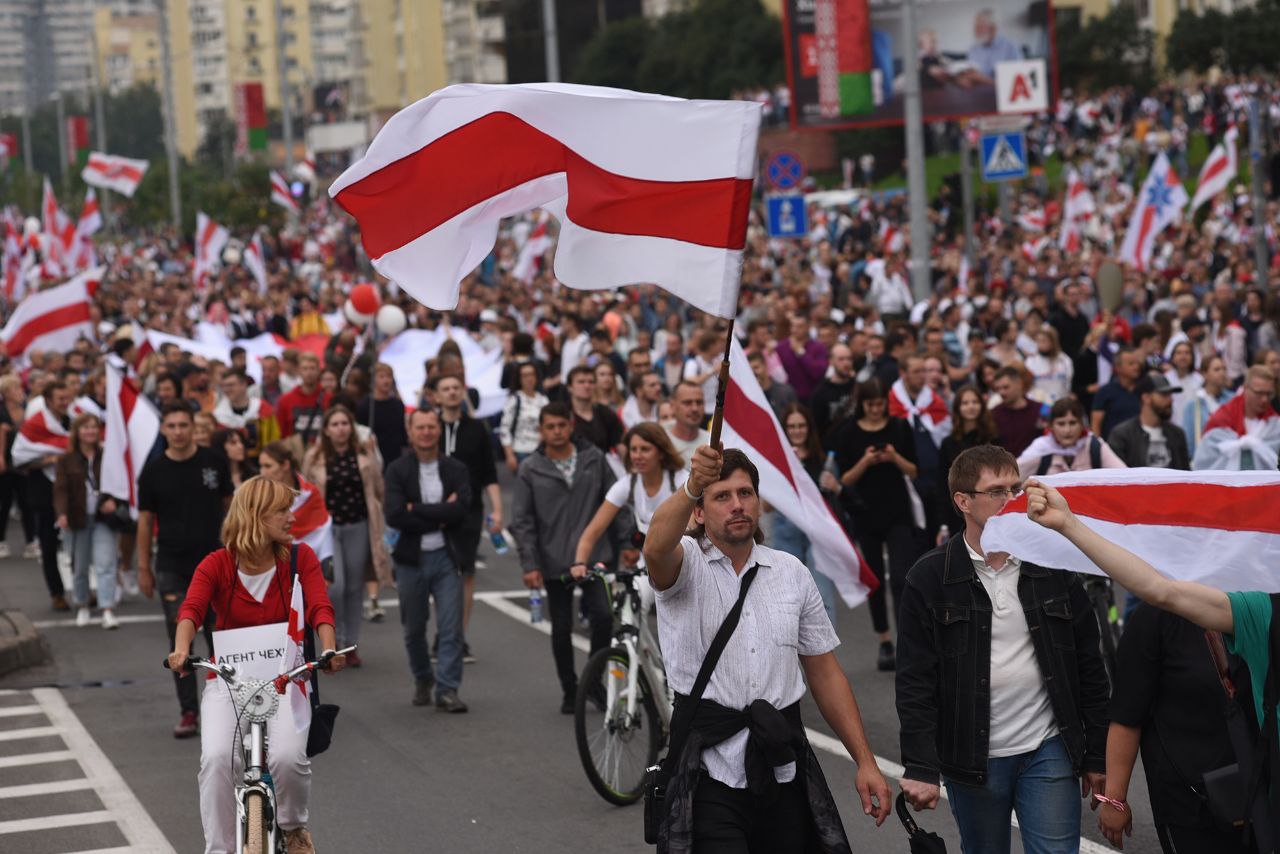
Protests in Belarus, 2020 (photo: Getty Images).
According to him, repression has not ceased, even after nearly all active citizens have either been imprisoned or fled abroad. To justify their existence, the punitive authorities must constantly detain new "extremists." As a result, they target individuals who participated in the 2020 protests, sometimes even for the second time.
At the same time, getting a long prison sentence in Belarus is possible for virtually anything: liking a post on social media, subscribing to one of the thousands of banned resources, or displaying any item in red-and-white colors. Speaking loudly in Belarusian, even on neutral topics, can attract unwanted attention.
Oreshnik and nuclear weapons in Belarus
"There's a lot of talk about Oreshnik but little action. The deployment of Oreshnik in Belarus carries no military necessity," comments Motolko regarding Lukashenko's statements claiming that he allegedly "requested" these systems to be stationed on Belarusian territory. "It's roughly the level of fantasy shared by both Putin and Lukashenko. The only thing we assume is that Oreshnik is mounted on the chassis of the Belarusian MZKT (Minsk Wheel Tractor Plant, - ed.), which seems to be under sanctions from almost every country in the world. Lukashenko is also cooperating with the Kremlin in terms of military-industrial production," Motolko explains.
The founder of Hajun also takes a skeptical stance on the reports about the deployment of Russian nuclear weapons in Belarus, despite Lukashenko's constant bragging on the subject.
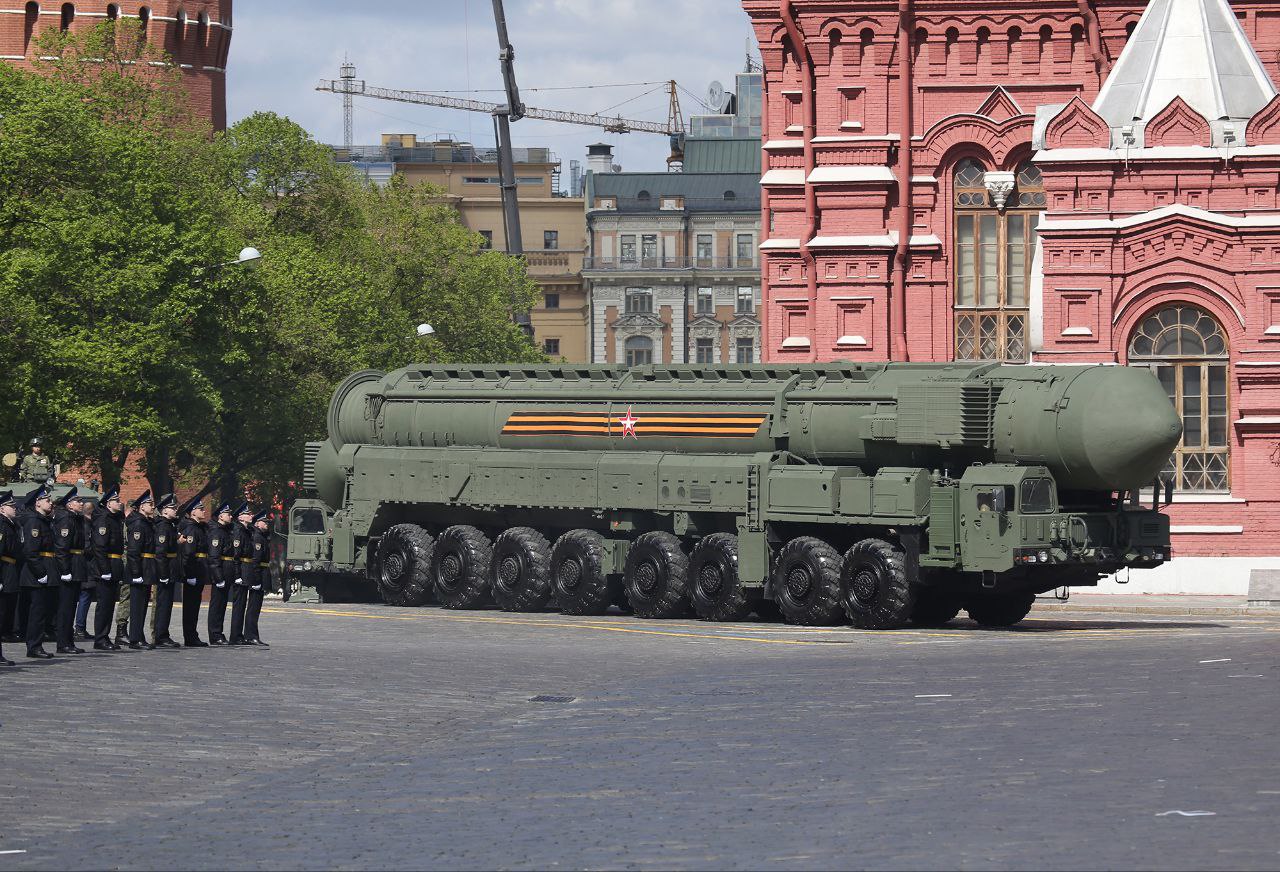
Russian RS-24 Yars missile-nuclear complex (photo: Getty Images).
"We have no evidence that nuclear weapons are located on Belarusian territory. We can assume that they may have been transported in and out of the northern Vitebsk region, literally on the border with Russia, but this version is also unconfirmed. At present, we do not have a single confirmed site prepared for their storage, no specialized communications infrastructure we could identify, nor the presence of Russian military forces or special security personnel that would be required there. As of now, we do not confirm this and believe it to be a sophisticated Russian information and psychological operation (IPSO) aimed at negotiations with the United States regarding the deployment of nuclear weapons in Europe," says Motolko.

